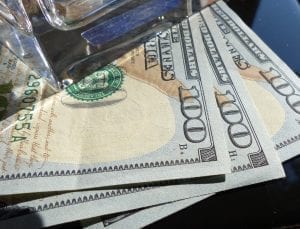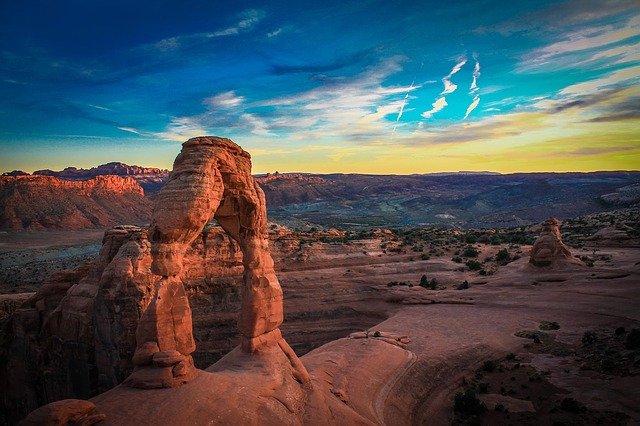The lawsuit claims that the National Park Service’s recent policy of refusing cash payment at some sites violates provisions of U.S. Code that require certain public bodies to accept paper currency as legal tender.
The National Park Service is facing a novel lawsuit challenging a recently-implemented policy designed to encourage cashless payment at destinations across the country.
According to The Los Angeles Times, the complaint was filed earlier this month on behalf of three plaintiffs: Esther van der Werf from California, Toby Stover of New York, and Elizabeth Dasburg of Georgia. Each of the plaintiffs say that they were prevented from using cash at N.P.S.-managed sites, including national parks in several different states.
Attorneys say that the National Park Service’s policy of refusing cash payments violates provisions of the U.S. Code, which requires that paper currency be considered legal tender by all public entities.
“N.P.S. cashless is contrary to law, since American money is not accepted as legal tender to visit the nation’s treasures,” the lawsuit alleges. “Thus, N.P.S.’s refusal to accept U.S. Currency tendered for entrance fees constitutes a clear violation of federal law.”
The agency, however, has since justified its policy, claiming that processing cash transactions entails higher operating costs.

Speaking to USA Today, Justin Unger—the National Park Service’s associate director for Business Services—said that its recent aversion to paper money was influenced by the U.S. Department of Treasury, which has introduced policies intended to reduce cash and check-based transactions.
“The number of formal banks with relationships with the Treasury Department, where we could actually take cash, has really dried up—especially in more rural or remote areas,” Unger told USA Today, adding that the National Park Service’s policies are also a result of clear changes in visitors’ payment preferences. “[…] The amount of cash that we are actually being offered has significantly declined by tens of millions of dollars.”
The Los Angeles Times notes that the National Park Service implemented cashless policies at “multiple locations” beginning in 2023. In a press release, the N.P.S. said that it had collected $22,000 in cash at Death Valley National Park—incurring resulting costs of more than $40.000.
“Cash handling costs include an armored car contract to transport cash and park rangers’ time counting money and processing paperwork,” the agency wrote in its release. “The transition to cashless payments will allow the N.P.S. to redirect the $40,000 previously spent processing cash to directly benefit park visitors.”
But Ray Flores—an attorney for the three plaintiffs—said his clients simply wish to “[assert] their right to pay with American money to enter some of America’s National Parks.”
“They seek no monetary award,” Flores said, adding that the “Children’s Health Defense is financially backing the lawsuit.”
[note: according to The New York Times, the Children’s Health Defense Fund—a non-profit founded by Robert E. Kennedy, Jr.—has been roundly criticized for its stance against coronavirus-related health restrictions, as well as its role in spreading disinformation about COVID-19 vaccines]
Kim Mack Rosenberg, general counsel for the Children’s Health Defense Fund, has since said that his organization is supporting the lawsuit “to push back against the move toward a cashless society and central bank digital currency.”
Sources
National Park Service sued over cashless entry at parks, historic sites across US
The National Park Service will only take plastic at its parks. Three visitors are suing to use cash
U.S. Park Service Says to Leave Your Cash at Home, but Some Object


Join the conversation!